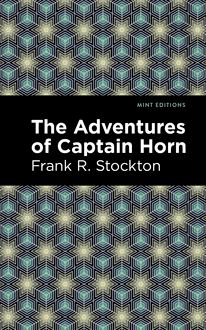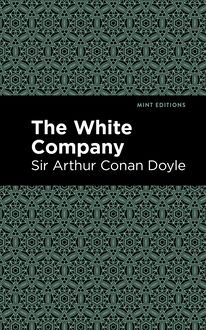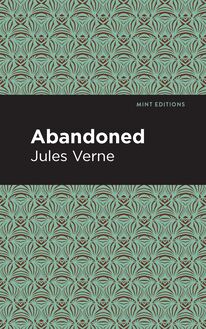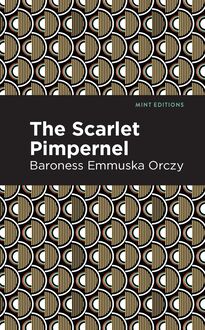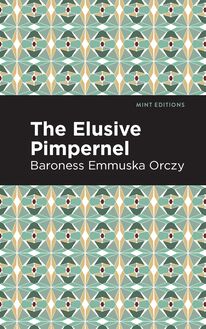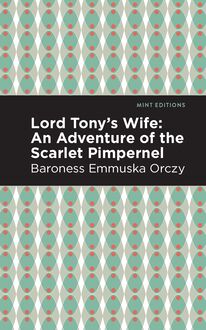-
 Univers
Univers
-
 Ebooks
Ebooks
-
 Livres audio
Livres audio
-
 Presse
Presse
-
 Podcasts
Podcasts
-
 BD
BD
-
 Documents
Documents
-
- Cours
- Révisions
- Ressources pédagogiques
- Sciences de l’éducation
- Manuels scolaires
- Langues
- Travaux de classe
- Annales de BEP
- Etudes supérieures
- Maternelle et primaire
- Fiches de lecture
- Orientation scolaire
- Méthodologie
- Corrigés de devoir
- Annales d’examens et concours
- Annales du bac
- Annales du brevet
- Rapports de stage
La lecture à portée de main
Vous pourrez modifier la taille du texte de cet ouvrage
Découvre YouScribe en t'inscrivant gratuitement
Je m'inscrisDécouvre YouScribe en t'inscrivant gratuitement
Je m'inscrisEn savoir plus
Vous pourrez modifier la taille du texte de cet ouvrage
En savoir plus

Description
Kidnapped was published in 1886 amid one of the most productive periods of Robert Louis Stevenson’s career. Although it was immediately met with popular success and critical acclaim, the novel was derided for decades as a story for children before being recognized as a major work of English literature.
Set in the aftermath of the Jacobite uprising of 1745, and full of a rich blend of English and Scots, Kidnapped is a powerful work with strong Scottish ties. The narrative follows David Balfour, a 17-year-old orphan whose uncle, the wretched and disturbed Ebenezer, conspires to steal the family estate, David’s rightful inheritance. When David discovers his uncle’s plan, Ebenezer tricks the boy and sells him to Captain Hoseason, a slaver embarking for the Carolinas. Blindsided by a blow to the head, David awakes in the hold of the Covenant, bound with rope and helpless as the ship bears him toward the terrors of slavery. By a stroke of faith, however, the ship gets lost in fog and strikes a smaller boat near the west coast of Scotland. In the ensuing chaos, David and one of the wreck’s survivors, Jacobite rebel Alan Breck Stewart, gain control of the ship and force Captain Hoseason to turn the Covenant toward the mainland. When the ship runs up against rocks, David finds himself alone on shore, and bravely begins his landward journey to regain his inheritance. Swept up in political circumstances far beyond his control, and faced with the danger awaiting him at home, David must do all he can to survive.
To read Robert Louis Stevenson’s Kidnapped is to enter a world fully formed by the mind of one of history’s greatest storytellers. David Balfour’s story is gripping not just because it is a tale of survival, but because his struggle to overcome the merciless turns of fate is, to its core, unbearably and beautifully human. Kidnapped is a historical adventure novel adored by readers, critics, and writers alike. It is a story for children and adults who refuse to accept that hope is a thing to outgrow.
With a beautifully designed cover and professionally typeset manuscript, this new edition of Robert Louis Stevenson’s Kidnapped is a classic of English literature reimagined for modern readers.
Sujets
Informations
| Publié par | Mint Editions |
| Date de parution | 29 novembre 2020 |
| Nombre de lectures | 0 |
| EAN13 | 9781513266794 |
| Langue | English |
| Poids de l'ouvrage | 1 Mo |
Informations légales : prix de location à la page 0,0500€. Cette information est donnée uniquement à titre indicatif conformément à la législation en vigueur.
Extrait
Kidnapped
Robert Louis Stevenson
Kidnapped was first published in 1886.
This edition published by Mint Editions 2020.
ISBN 9781513266350 | E-ISBN 9781513266794
Published by Mint Editions®
minteditionbooks .com
Publishing Director: Jennifer Newens
Project Manager: Gabrielle Maudiere
Design & Production: Rachel Lopez Metzger
Typesetting: Westchester Publishing Services
C ONTENTS 1. I S ET OFF U PON M Y J OURNEY TO THE H OUSE OF S HAWS 2. I C OME TO M Y J OURNEY ’ S E ND 3. I M AKE A CQUAINTANCE OF M Y U NCLE 4. I R UN A G REAT D ANGER IN THE H OUSE OF S HAWS 5. I G O TO THE Q UEEN ’ S F ERRY 6. W HAT B EFELL AT THE Q UEEN ’ S F ERRY 7. I G O TO S EA IN THE B RIG C OVENANT OF D YSART 8. T HE R OUND -H OUSE 9. T HE M AN WITH THE B ELT OF G OLD 10. T HE S IEGE OF THE R OUND -H OUSE 11. T HE C APTAIN K NUCKLES U NDER 12. I H EAR OF THE “R ED F OX ” 13. T HE L OSS OF THE B RIG 14. T HE I SLET 15. T HE L AD WITH THE S ILVER B UTTON : T HROUGH THE I SLE OF M ULL 16. T HE L AD WITH THE S ILVER B UTTON : A CROSS M ORVEN 17. T HE D EATH OF THE R ED F OX 18. I T ALK WITH A LAN IN THE W OOD OF L ETTERMORE 19. T HE H OUSE OF F EAR 20. T HE F LIGHT IN THE H EATHER : T HE R OCKS 21. T HE F LIGHT IN THE H EATHER : T HE H EUGH OF C ORRYNAKIEGH 22. T HE F LIGHT IN THE H EATHER : T HE M OOR 23. C LUNY ’ S C AGE 24. T HE F LIGHT IN THE H EATHER : T HE Q UARREL 25. I N B ALQUHIDDER 26. E ND OF THE F LIGHT : W E P ASS THE F ORTH 27. I C OME TO M R . R ANKEILLOR 28. I G O IN Q UEST OF M Y I NHERITANCE 29. I C OME INTO M Y K INGDOM 30. G OOD -B YE
Chapter 1
I S ET OFF U PON M Y J OURNEY TO THE H OUSE OF S HAWS
I will begin the story of my adventures with a certain morning early in the month of June, the year of grace 1751, when I took the key for the last time out of the door of my father’s house. The sun began to shine upon the summit of the hills as I went down the road; and by the time I had come as far as the manse, the blackbirds were whistling in the garden lilacs, and the mist that hung around the valley in the time of the dawn was beginning to arise and die away.
Mr. Campbell, the minister of Essendean, was waiting for me by the garden gate, good man! He asked me if I had breakfasted; and hearing that I lacked for nothing, he took my hand in both of his and clapped it kindly under his arm.
“Well, Davie, lad,” said he, “I will go with you as far as the ford, to set you on the way.” And we began to walk forward in silence.
“Are ye sorry to leave Essendean?” said he, after awhile.
“Why, sir,” said I, “if I knew where I was going, or what was likely to become of me, I would tell you candidly. Essendean is a good place indeed, and I have been very happy there; but then I have never been anywhere else. My father and mother, since they are both dead, I shall be no nearer to in Essendean than in the Kingdom of Hungary, and, to speak truth, if I thought I had a chance to better myself where I was going I would go with a good will.”
“Ay?” said Mr. Campbell. “Very well, Davie. Then it behoves me to tell your fortune; or so far as I may. When your mother was gone, and your father (the worthy, Christian man) began to sicken for his end, he gave me in charge a certain letter, which he said was your inheritance. ‘So soon,’ says he, ‘as I am gone, and the house is redd up and the gear disposed of’ (all which, Davie, hath been done), ‘give my boy this letter into his hand, and start him off to the house of Shaws, not far from Cramond. That is the place I came from,’ he said, ‘and it’s where it befits that my boy should return. He is a steady lad,’ your father said, ‘and a canny goer; and I doubt not he will come safe, and be well lived where he goes.’ ”
“The house of Shaws!” I cried. “What had my poor father to do with the house of Shaws?”
“Nay,” said Mr. Campbell, “who can tell that for a surety? But the name of that family, Davie, boy, is the name you bear—Balfours of Shaws: an ancient, honest, reputable house, peradventure in these latter days decayed. Your father, too, was a man of learning as befitted his position; no man more plausibly conducted school; nor had he the manner or the speech of a common dominie; but (as ye will yourself remember) I took aye a pleasure to have him to the manse to meet the gentry; and those of my own house, Campbell of Kilrennet, Campbell of Dunswire, Campbell of Minch, and others, all well-kenned gentlemen, had pleasure in his society. Lastly, to put all the elements of this affair before you, here is the testamentary letter itself, superscrived by the own hand of our departed brother.”
He gave me the letter, which was addressed in these words: “To the hands of Ebenezer Balfour, Esquire, of Shaws, in his house of Shaws, these will be delivered by my son, David Balfour.” My heart was beating hard at this great prospect now suddenly opening before a lad of seventeen years of age, the son of a poor country dominie in the Forest of Ettrick.
“Mr. Campbell,” I stammered, “and if you were in my shoes, would you go?”
“Of a surety,” said the minister, “that would I, and without pause. A pretty lad like you should get to Cramond (which is near in by Edinburgh) in two days of walk. If the worst came to the worst, and your high relations (as I cannot but suppose them to be somewhat of your blood) should put you to the door, ye can but walk the two days back again and risp at the manse door. But I would rather hope that ye shall be well received, as your poor father forecast for you, and for anything that I ken come to be a great man in time. And here, Davie, laddie,” he resumed, “it lies near upon my conscience to improve this parting, and set you on the right guard against the dangers of the world.”
Here he cast about for a comfortable seat, lighted on a big boulder under a birch by the trackside, sate down upon it with a very long, serious upper lip, and the sun now shining in upon us between two peaks, put his pocket-handkerchief over his cocked hat to shelter him. There, then, with uplifted forefinger, he first put me on my guard against a considerable number of heresies, to which I had no temptation, and urged upon me to be instant in my prayers and reading of the Bible. That done, he drew a picture of the great house that I was bound to, and how I should conduct myself with its inhabitants.
“Be soople, Davie, in things immaterial,” said he. “Bear ye this in mind, that, though gentle born, ye have had a country rearing. Dinnae shame us, Davie, dinnae shame us! In yon great, muckle house, with all these domestics, upper and under, show yourself as nice, as circumspect, as quick at the conception, and as slow of speech as any. As for the laird—remember he’s the laird; I say no more: honour to whom honour. It’s a pleasure to obey a laird; or should be, to the young.”
“Well, sir,” said I, “it may be; and I’ll promise you I’ll try to make it so.”
“Why, very well said,” replied Mr. Campbell, heartily. “And now to come to the material, or (to make a quibble) to the immaterial. I have here a little packet which contains four things.” He tugged it, as he spoke, and with some great difficulty, from the skirt pocket of his coat. “Of these four things, the first is your legal due: the little pickle money for your father’s books and plenishing, which I have bought (as I have explained from the first) in the design of re-selling at a profit to the incoming dominie. The other three are gifties that Mrs. Campbell and myself would be blithe of your acceptance. The first, which is round, will likely please ye best at the first off-go; but, O Davie, laddie, it’s but a drop of water in the sea; it’ll help you but a step, and vanish like the morning. The second, which is flat and square and written upon, will stand by you through life, like a good staff for the road, and a good pillow to your head in sickness. And as for the last, which is cubical, that’ll see you, it’s my prayerful wish, into a better land.”
With that he got upon his feet, took off his hat, and prayed a little while aloud, and in affecting terms, for a young man setting out into the world; then suddenly took me in his arms and embraced me very hard; then held me at arm’s length, looking at me with his face all working with sorrow; and then whipped about, and crying good-bye to me, set off backward by the way that we had come at a sort of jogging run. It might have been laughable to another; but I was in no mind to laugh. I watched him as long as he was in sight; and he never stopped hurrying, nor once looked back. Then it came in upon my mind that this was all his sorrow at my departure; and my conscience smote me hard and fast, because I, for my part, was overjoyed to get away out of that quiet country-side, and go to a great, busy house, among rich and respected gentlefolk of my own name and blood.
“Davie, Davie,” I thought, “was ever seen such black ingratitude? Can you forget old favours and old friends at the mere whistle of a name? Fie, fie; think shame.”
And I sat down on the boulder the good man had just left, and opened the parcel to see the nature of my gifts. That which he had called cubical, I had never had much doubt of; sure enough it was a little Bible, to carry in a plaid-neuk. That which he had called round, I found to be a shilling piece; and the third, which was to help me so wonderfully both in health and sickness all the days of my life, was a little piece of coarse yellow paper, written upon thus in red ink:
T O M AKE L ILLY O F T HE V ALLEY W ATER .—Take the flowers of lilly of the valley and distil them in sack, and drink a spooneful or two as there is occasion. It restores speech to those that have the dumb palsey. It is good against the Gout; it comforts the heart and strengthens the memory; and the flowers, put into a Glasse, close stopt, and set into ane hill of ants for a month, then take it out, and you will find a liquor which comes from the flowers, whic
-
 Univers
Univers
-
 Ebooks
Ebooks
-
 Livres audio
Livres audio
-
 Presse
Presse
-
 Podcasts
Podcasts
-
 BD
BD
-
 Documents
Documents
-
Jeunesse
-
Littérature
-
Ressources professionnelles
-
Santé et bien-être
-
Savoirs
-
Education
-
Loisirs et hobbies
-
Art, musique et cinéma
-
Actualité et débat de société
-
Jeunesse
-
Littérature
-
Ressources professionnelles
-
Santé et bien-être
-
Savoirs
-
Education
-
Loisirs et hobbies
-
Art, musique et cinéma
-
Actualité et débat de société
-
Actualités
-
Lifestyle
-
Presse jeunesse
-
Presse professionnelle
-
Pratique
-
Presse sportive
-
Presse internationale
-
Culture & Médias
-
Action et Aventures
-
Science-fiction et Fantasy
-
Société
-
Jeunesse
-
Littérature
-
Ressources professionnelles
-
Santé et bien-être
-
Savoirs
-
Education
-
Loisirs et hobbies
-
Art, musique et cinéma
-
Actualité et débat de société
- Cours
- Révisions
- Ressources pédagogiques
- Sciences de l’éducation
- Manuels scolaires
- Langues
- Travaux de classe
- Annales de BEP
- Etudes supérieures
- Maternelle et primaire
- Fiches de lecture
- Orientation scolaire
- Méthodologie
- Corrigés de devoir
- Annales d’examens et concours
- Annales du bac
- Annales du brevet
- Rapports de stage


